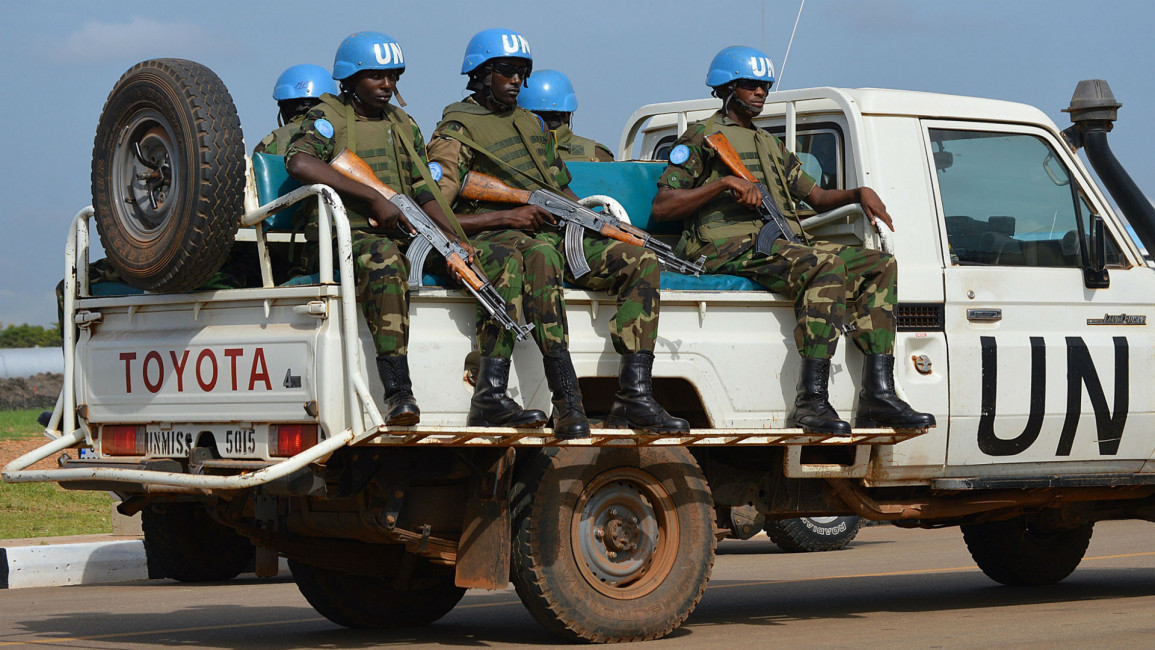South Sudan's fourth anniversary marred by violence
South Sudan's fourth anniversary, 9 July, has arrived alongside international condemnations of the extreme violence, possible war crimes and humanitarian crisis caused by its on going civil war.
"The South Sudanese people face suffering, unconscionable levels of violence and unspeakable sexual abuse," said UN Secretary-General Ban Ki-Moon in a statement issued on 8 July.
Ban said that despite high hopes when the country gained independence, now over 1.6 million people have been displaced, including more than 150,000 seeking refuge in the UN Mision in South Sudan's protection sites.
He added that over 4.6 million are facing severe food insecurity and over 600,000 have been forced to flee to neighbouring countries.
Over the last year there has been a distinct deterioration in the security situation caused by a power struggle between President Salva Kiir and his former Vice-President Riek Machar, which started in December 2013 and quickly erupted into intense fighting.
"The violence that has ravaged South Sudan over the past 18 months proves that there can never be a military solution to this conflict. I therefore call on all leaders of South Sudan – particularly Kiir and Machar – to prove their leadership by investing in a political solution and immediately concluding a comprehensive peace agreement," Ban said.
| Humanitarian attempts to help those affected have been limited by funding shortfalls. |
The UN secretary-general also asked the international community to take decisive steps to help end the fighting.
Iain Levine, program director at Human Rights Watch called for the perpetrators of the most serious crimes to be "taken to court for fair, credible trials", if South Sudan was to celebrate its 5th birthday in better shape than it is in today.
The anniversary comes soon after a UN report on 30 June detailing how the South Sudanese army had raped then torched girls alive inside their homes during a recent campaign marked by "new brutality and intensity”.
Earlier that month monitors from East Africa's eight-country IGAD bloc published a report about the abduction of up to a 1000 child soldiers by warring factions in early June in the northern state of Upper Nile.
"I am particularly alarmed by the loss of so many innocent children's lives amid the hostilities," said Leila Zerrougui, UN Special Representative for Children and Armed Conflict in a seperate statement. She also acknowledged that children had been especially suffered from being subjected to crimes varying from the killing or maiming and recruitment or use of child soldiers, to sexual violence and abduction.
Adrian Edwards, spokesperson for the Office of the UN High Commissioner for Human Rights told a press conference in Geneva on 7 July that political efforts to end the conflict had failed and that the outlook for the affected populations remained "grim".
Edwards said there had been an escalation in violence across South Sudan's Unity and Upper Nile states in recent weeks, with heavy fighting reportedly forcing tens of thousands of people to flee to the bush, swamplands and other "difficult to reach" areas.
Humanitarian attempts to help those affected have been limited by funding shortfalls.
UNHCR said its refugee assistance programmes has only received 13 percent of the $810 million it needs. This has limited its capacity to provide adequate supplies of food and water to the hundreds and thousands affected by the conflict.



